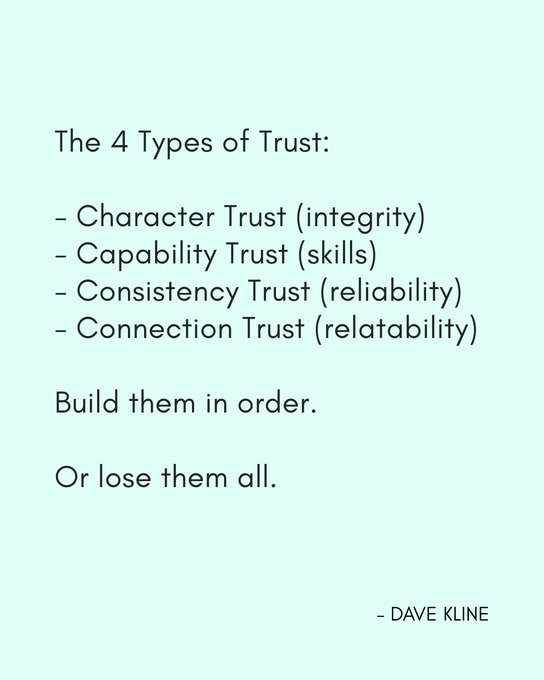Root Cause Analysis (aka The 5 Whys) is a common consulting tactic.
But it can actually fuel personal development.
I've run 100's of these sessions and learned one key truth:
The 6th Why is the one that matters 🧵
But it can actually fuel personal development.
I've run 100's of these sessions and learned one key truth:
The 6th Why is the one that matters 🧵
1/ The 5 Whys?
It's a diagnostic problem solving technique popularized by Sakichi Toyoda, the Japanese industrialist & Toyota founder.
I practiced it at Bridgewater where it was the critical inflection point in Ray Dalio's 5-step process.
It's a diagnostic problem solving technique popularized by Sakichi Toyoda, the Japanese industrialist & Toyota founder.
I practiced it at Bridgewater where it was the critical inflection point in Ray Dalio's 5-step process.
https://twitter.com/tweet_librarian/status/1083502134413479937
2/ The Theory
Ask Why questions to identify the underlying root cause of an issue.
Then make changes to improve outcomes in the future.
The deeper you dig, the higher the leverage of the fix.
Put simply: Don't treat the symptom, cure the disease.
Ask Why questions to identify the underlying root cause of an issue.
Then make changes to improve outcomes in the future.
The deeper you dig, the higher the leverage of the fix.
Put simply: Don't treat the symptom, cure the disease.
3/ This practice has taken hold far beyond manufacturing:
https://twitter.com/ShippingTmrw/status/1408064119463239686
4/ Why it works
In a word: Compounding
Treat the root cause effectively and you:
✅ Deal with the immediate problem
✅ Prevent future recurrences of the issue
✅ Address other seemingly unrelated problems
One fix to address many problems.
In a word: Compounding
Treat the root cause effectively and you:
✅ Deal with the immediate problem
✅ Prevent future recurrences of the issue
✅ Address other seemingly unrelated problems
One fix to address many problems.
5/ Is it really that easy?
Actually, no.
Why questions are open-ended and can go a number of directions.
You definitely have the potential for a fractal of nonsense.
So be honest with each Why:
Is your answer the big deal or a distraction?
Actually, no.
Why questions are open-ended and can go a number of directions.
You definitely have the potential for a fractal of nonsense.
So be honest with each Why:
Is your answer the big deal or a distraction?
https://twitter.com/fakeryangosling/status/1136353337530470400
6/ Example
Customer abandoned a purchase on your site:
Why? They want a promo code
Why? They think your price is too high
Why? We didn't do market research
Why? We're understaffed
Why? I haven't filled the position
Magic, right?
Well, almost.
Customer abandoned a purchase on your site:
Why? They want a promo code
Why? They think your price is too high
Why? We didn't do market research
Why? We're understaffed
Why? I haven't filled the position
Magic, right?
Well, almost.
7/ The 6th Why
Do you notice what happens as we move through the Whys?
💡 They get specific -> We progress from what happened to what caused it.
💡 And more personal -> Groups narrow to individuals.
There's one more Why & it's uncomfortable.
But that's where the growth is.
Do you notice what happens as we move through the Whys?
💡 They get specific -> We progress from what happened to what caused it.
💡 And more personal -> Groups narrow to individuals.
There's one more Why & it's uncomfortable.
But that's where the growth is.
8/ Back to our example
Why haven't you filled the position?
❌ Maybe you designed an unattractive role
❌ Perhaps you didn't see the demand coming
❌ Or you are losing people faster than you can hire
These answers are raw & imply something about YOU is causing the issue.
Why haven't you filled the position?
❌ Maybe you designed an unattractive role
❌ Perhaps you didn't see the demand coming
❌ Or you are losing people faster than you can hire
These answers are raw & imply something about YOU is causing the issue.
9/ This isn't just about work
I can't get in shape
Why? No time to workout
Why? Day is packed with work
Why? My boss keeps piling on more
Why? B/c I haven't told her no
Why? B/c I can't disappoint her
Why? B/c I need the money
Wait, it's a money issue not a fitness problem?
I can't get in shape
Why? No time to workout
Why? Day is packed with work
Why? My boss keeps piling on more
Why? B/c I haven't told her no
Why? B/c I can't disappoint her
Why? B/c I need the money
Wait, it's a money issue not a fitness problem?
10/ Now what?
Don't overreact to one mistake. We all make them.
Do watch for patterns of mistakes. These tend to reveal true weaknesses.
For these, consider how to best address:
- setup guardrails
- fix your habits
- automate
- eliminate
- delegate
Don't overreact to one mistake. We all make them.
Do watch for patterns of mistakes. These tend to reveal true weaknesses.
For these, consider how to best address:
- setup guardrails
- fix your habits
- automate
- eliminate
- delegate
https://twitter.com/RayDalio/status/1416804509850824710
If you found this personal improvement method helpful, please share the first tweet.
And follow me @dklineii if you're interested in more practical guides for your career and lifelong learning.
And follow me @dklineii if you're interested in more practical guides for your career and lifelong learning.
https://twitter.com/dklineii/status/1466406715318931467?s=20
If you're a new manager, or a manager struggling to have the impact you desire, you'll be interested in my Systematic Management Accelerator:
• 3-week cohort
• Tight-knit peer community
• Tactics & systems to build & lead great teams
Join my waitlist
skillscouter.com/management-acc…
• 3-week cohort
• Tight-knit peer community
• Tactics & systems to build & lead great teams
Join my waitlist
skillscouter.com/management-acc…

• • •
Missing some Tweet in this thread? You can try to
force a refresh





